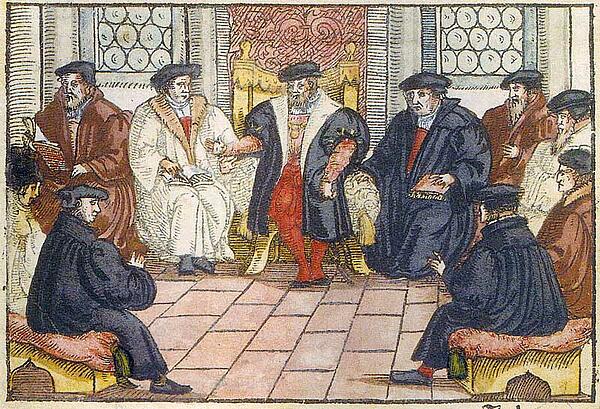The Marburg Colloquy
The Marburg Colloquy was a theological conference held between Ulrich Zwingli and Martin Luther in 1529. The subject of the debate was whether Christ was present or merely symbolised in the Eucharist. The objective was to resolve these theological differences and create a unified Protestant front against the Catholic Church.
The Protestant ruler, Philip of Hesse, aimed to unify all strands of Protestantism. He believed that as a divided entity they would be weak against the Catholic ruler, Charles V, but together they would be an intimidating force. However, Philip’s ambitions failed to consider the theological differences between the different denominations.

Both Luther and Zwingli came together at the Colloquy of Marburg in October 1529. Philip of Hesse hoped that they would be able to argue through their issues. However, the meeting failed. Neither reformer could agree and at the end of the debate Luther refused to shake hands with Zwingli.
The crux of their disagreement was the Eucharist. Luther believed that Christ was present in the church service, although it was a miracle that could never be truly understood. However, Zwingli argued that the bread and wine were a symbol of Christ’s sacrifice and that the service merely commemorated the Last Supper.
However, the Marburg Colloquy was not a complete failure; both men agreed on all aspects of belief, apart from the thorny issue of the Eucharist.
See also: How Influential was Ulrich Zwingli?
MLA Citation/Reference
"The Marburg Colloquy". HistoryLearning.com. 2026. Web.
